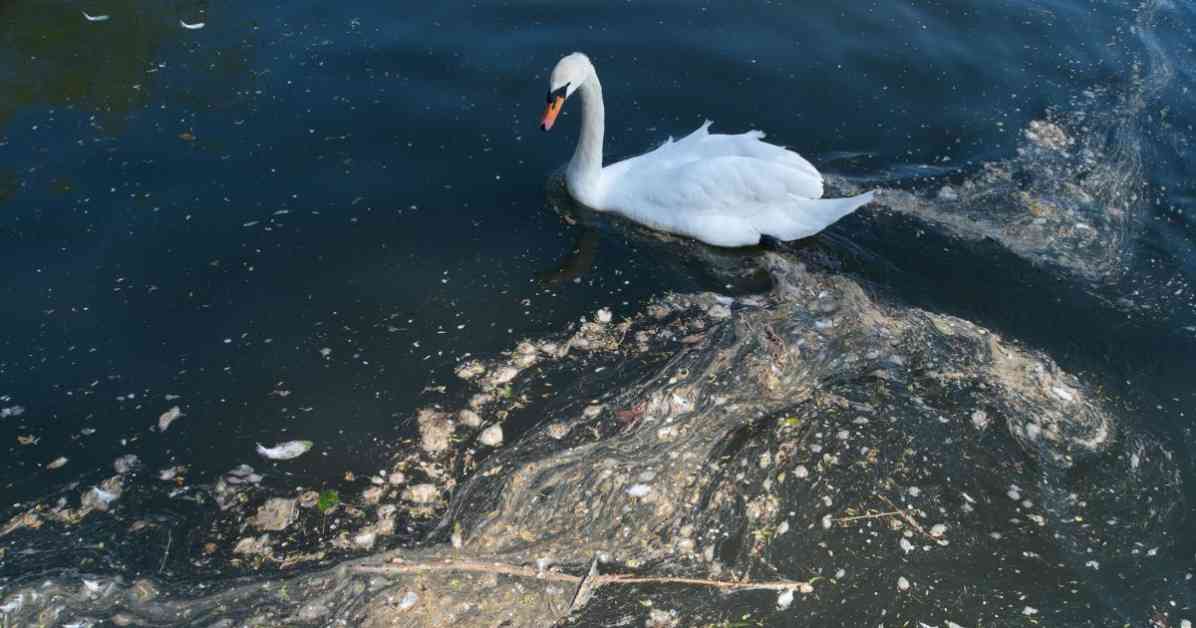Water Company Executives Facing Jail Time for Illegal Sewage Dumping
In a move to crack down on the repeated pollution of the UK’s rivers and seas, the government has introduced new legislation that could see water company executives facing imprisonment for their actions. The Water (Special Measures) Bill aims to address the ongoing issue of sewage dumping in British waterways, with a focus on holding those responsible accountable for their actions.
The bill, which outlines Labour’s approach to tackling the widespread dumping of sewage in the country’s waterways, includes provisions for regulators to ban massive bonuses for water company bosses. This comes in response to the alarming increase in raw sewage spills into bodies of water in England, with last year alone recording 3.6 million hours of such spills – more than double the figure from 2022.
The impact of these sewage spills is significant, causing harm to local wildlife and posing a risk of illness to individuals who come into contact with the contaminated water. Even popular tourist destinations like Windermere in the Lake District have not been immune to the effects of illegal sewage dumping, as evidenced by a 10-hour sewage pump into the lake reported by BBC News in February.
Analysis from Friends of the Earth has also revealed that more than a quarter of sewage spills into England’s seas last year occurred within three kilometers of bathing sites, highlighting the potential risks to public health and the environment. In response to these concerning trends, the government is taking decisive action to hold water company executives accountable for their actions.
Recent incidents involving major water companies, such as Southern Water’s fine of £330,000 for a sewage dump in Hampshire that killed 2,000 fish and Thames Water’s discharge of over two billion liters of raw sewage into the London river, have underscored the need for stronger measures to prevent future incidents. In a landmark decision, Thames Water was fined £104 million for failing to manage their treatment works, signaling a significant shift in how the industry is regulated.
The new bill seeks to empower the Environment Agency to bring criminal charges against water executives who violate environmental laws, marking a departure from the limited prosecutions that have occurred since the industry was privatized. Environment Secretary Steve Reed has emphasized the government’s commitment to holding water companies accountable for their actions, stating that executives who fail to comply with regulations could face prison time.
The introduction of the Water (Special Measures) Bill has been met with support from regulators like Ofwat and the Environment Agency, who see the legislation as a crucial step towards driving transformative change in the water industry. Ofwat Chief Executive David Black noted that the bill strengthens regulators’ powers and will help drive improvements in environmental standards within the industry, while Environment Agency Chair Alan Lovell highlighted the importance of deterring illegal behavior and enforcing swift enforcement action.
Despite the positive reception to the new bill, some advocacy groups like Surfers Against Sewage are calling for more comprehensive action to address the root causes of sewage spills in the country’s waterways. Louise Reddy, a policy officer for the group, emphasized the need for a thorough review of the water system to identify and address underlying issues that contribute to pollution, rather than relying on piecemeal solutions.
The Water (Special Measures) Bill includes several key provisions aimed at incentivizing industry bosses to tackle pollution and improve environmental standards. These include:
Tougher Penalties: The bill introduces the threat of imprisonment for water company executives who break the law, replacing the current practice of issuing fines for most cases of obstruction.
Banning Bonuses: Regulator Ofwat will have the authority to withhold performance-related bonuses from bosses and senior leaders who fail to meet high standards on the environment, consumer protection, financial resilience, and criminal liability.
Strengthened Fines: The bill lowers the standard of proof required to issue fines for minor, frequent offenses, making it easier for the Environment Agency to enforce penalties and address violations more effectively.
Enhanced Monitoring: Water companies will be required to publish real-time data on emergency overflows in England in a clear, accessible format, improving transparency and accountability within the industry.
The government’s efforts to address the issue of sewage dumping in the UK’s waterways are a crucial step towards protecting the environment and public health. By holding water company executives accountable for their actions and implementing stricter regulations, the new legislation aims to prevent future incidents of pollution and ensure the long-term sustainability of the country’s water resources.












